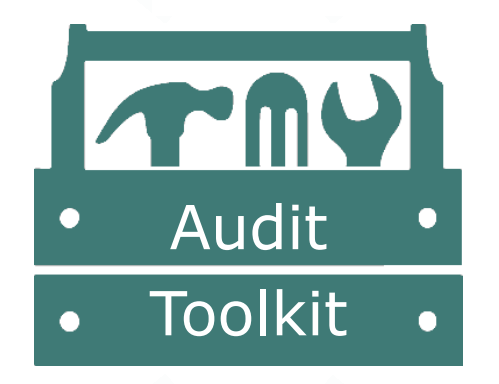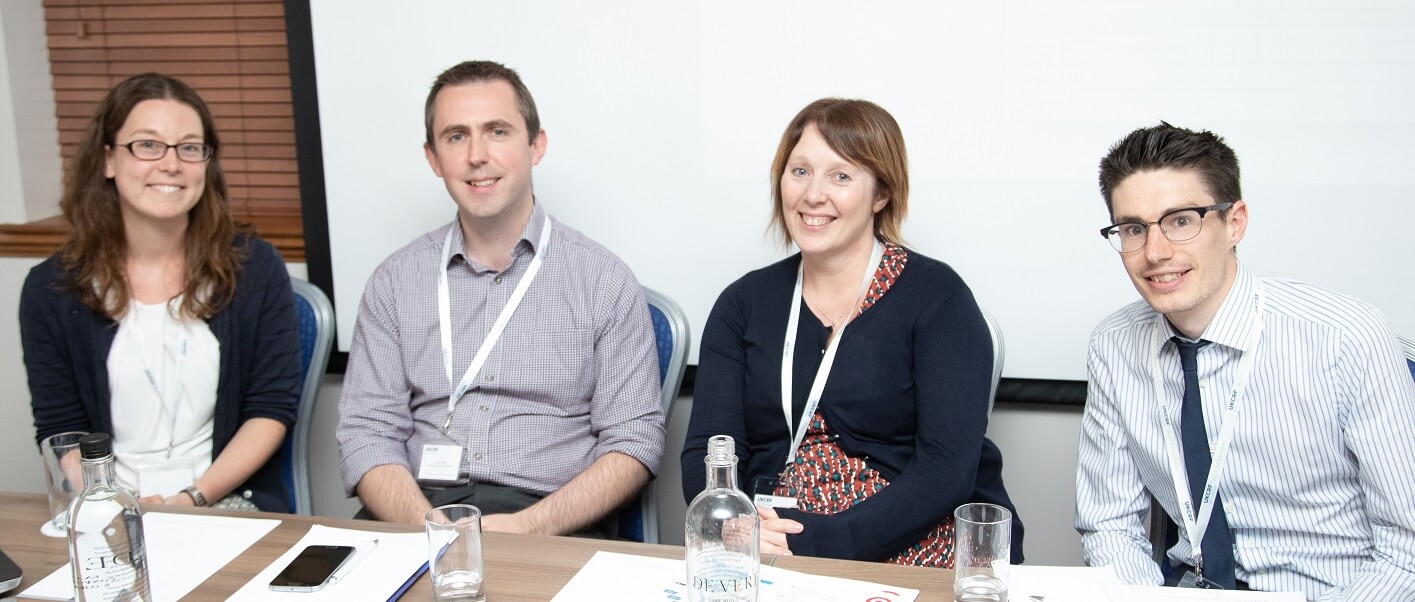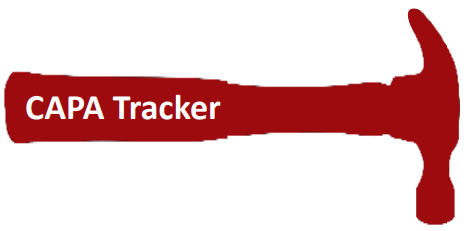
To support CRFs in developing an internal audit function, the UKCRF Quality Assurance Theme Group has developed a set of audit tools, templates and guidelines.

Pictured: Members of the QA Group at the 2019 Annual Conference – Kathryn Betts (Group Deputy), James Gibson (Group Chair), Lynn Hope and Jacob Bonner
Why are QA tools important?
It is a regulatory expectation that organisations have quality assurance (QA) procedures in place to provide assurance that clinical trials are being conducted in accordance with the protocol, SOPs, applicable legislation and good clinical practice (GCP). This includes an effective internal audit programme. However, this can be difficult in a CRF setting where dedicated QA resources are often limited.
To support CRFs in developing an internal audit function, the UKCRF Network QA Theme Group has developed a set of audit tools, templates and guidelines covering risk assessment and scheduling, planning, conducting and reporting audits, and tracking corrective and preventative actions (CAPA).
What is Included?

It is usually neither practical nor necessary to audit every system and process within a CRF on an annual basis, and a risk-based approach to compiling an audit schedule is encouraged.
A Risk Assessment Tool has been designed to help CRF’s prioritise their internal audit activity, focusing on the systems that pose the greatest risk in terms of participant safety, data integrity and regulatory compliance.

One important aspect of an internal audit programme is to have a clear schedule of audits agreed in advance. This allows both auditor and auditee to plan, prepare and allocate resources, but also helps ensure that audit coverage is sufficient and in line with organisational objectives.
An Audit Programme Template has been created to help auditors and managers to schedule and agree an annual programme.

An Audit Plan serves the important purpose of ensuring that all parties involved understand the timing and practical arrangements for an audit, as well as the objectives and scope. A clear and sufficiently detailed plan can help the auditee to prepare and to know what to expect, and can facilitate the smooth running of the audit.
An Audit Plan Template has been devised which covers the essentials but which can be adapted as required.

The QA Theme Group has previously developed an Audit Checklist Tool, and this has now been updated to improve the format, functionality and scope. The tool covers a range of systems and processes that are common topics for internal audit, and guides the auditor by providing prompts for what should be checked.
The checklists are adaptable and can be used separately for system-specific audits, or together for a broader study or facility audit.

Once an audit has been conducted, the findings need to be communicated back to the auditee and relevant management in a format that is concise and unambiguous.
An Audit Report Template has been designed to ensure that the important elements are included and to give some guidance on how to construct a clear, specific and
easily understandable audit finding.

Following an audit, it is important to correct any deficiencies identified and to implement measures to prevent them happening again. These corrective and preventative actions (CAPA) are often quick and easy, but may require more extensive action.
A tool has been designed to serve the dual functions of allowing CAPA to be tracked until resolution and identifying trends that may require further attention.
HOW CAN THE DOCUMENTS BE ACCESSED
The full Audit Toolkit (or individual documents) can be downloaded from the UKCRF Network Portal. If you are not already a member of the Portal, please complete the request form at the bottom of the page.
GROUP MEMBERS
The following CRF staff were involved in creating these documents
Kirsty Adams, QA Manager, Leonard Wolfson Experimental Neurology Centre, UCL
Kathryn Betts, QA Manager, Surrey CRF (Deputy Chair)
Jacob Bonner, QA and Governance Manager, NIHR Imperial CRF
Anna Chapman, QA Manager, NIHR Cambridge CRF
James Gibson, QA Lead, Edinburgh CRF (Chair)
Lynn Hope, Quality Lead Research, The Christie Research
Greg Langton, QA Manager, NIHR Leeds CRF
Jo O’Neill, QA Manager, NIHR/Wellcome Trust Birmingham CRF




